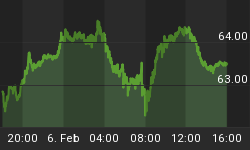This week the Sixth Circuit Court of Appeals ruled that the NSA's metadata collection program was not authorized in US law. The PATRIOT Act, under which the program began, was too vague, the court found. But the truth is the Act was intended to be vague so that the government could interpret it in the broadest possible way.
But this is really more of a technicality, because illegality and unconstitutionality are really two very different things. Even if Congress had explicitly authorized the government to collect our phone records, that law would still be unconstitutional because the Constitution does not grant government the power to access our personal information without a valid search warrant.
Even though the court found the NSA program illegal, it did not demand that the government stop collecting our information in this manner. Instead, the court kicked the ball back in Congress' court, as these provisions of the PATRIOT Act are set to expire at the end of the month and the Appeals Court decided to let Congress decide how to re-authorize this spying program.
Unfortunately, this is where there is not much to cheer. If past practice is any lesson, Congress will wait until the spying program is about to expire and then in a panic try to frighten Americans into accepting more intrusions on their privacy. Senate Majority Leader Mitch McConnell has already put forth a new bill as a stop-gap measure to allow time for a fuller debate on the issue. His stop-gap? A five year re-authorization with no changes to the current program!
The main reform bill being floated, the FREEDOM Act, is little better. Pretending to be a step in the right direction, the FREEDOM Act may actually be worse for our privacy and liberties than the PATRIOT Act!
One silver lining in the court decision is that it should exonerate Ed Snowden, who risked it all to expose what the courts have now found was illegal US government activity. That is the definition of a whistleblower. Shouldn't he be welcomed back home as a hero instead of being threatened with treason charges? We shouldn't hold our breath!
This week Snowden addressed a conference in Melbourne, Australia, informing citizens that the Australian government watches all its citizens "all the time." Australia's program allows the government to "collect everyone's communications in advance of criminal suspicion," he told the conference. That means the government is no longer in the business of prosecuting crimes, but instead is collecting information in case crimes someday occur.
How is it that the Australian government can collect and track "pre-crime" information on its citizens? Last month Australia passed a law requiring telecommunications companies to retain metadata information on their customers for two years.
Why do Australia's oppressive laws matter to us? Because the NSA "reform" legislation before Congress, the FREEDOM Act, does exactly what the Australian law does: it mandates that US telecommunications companies retain their customers' metadata information so that the NSA can access the information as it wishes.
Some argue that this metadata information is harmless and that civil libertarians are over-reacting. But, as Ed Snowden told the Melbourne conference, "under these mandatory metadata laws you can immediately see who journalists are contacting, from which you can derive who their sources are."
This one example of what happens when the government forces corporations to assist it in spying on the people should be a red flag. How can an independent media exist in the US if the government knows exactly whom journalists contact for information? It would be the end of any future whistleblowers.
The only reform of the PATRIOT Act is a total repeal. Accept nothing less.















